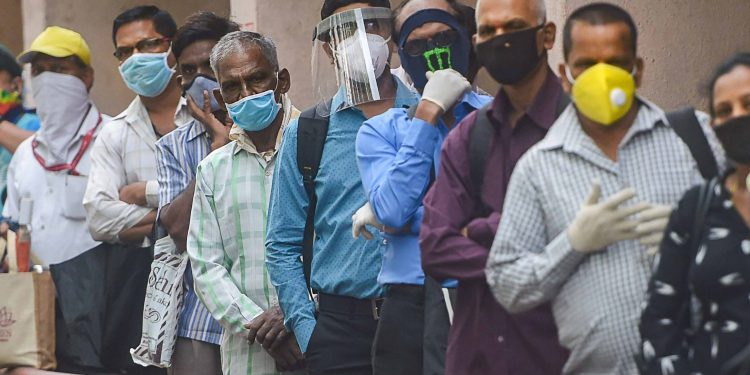New Delhi: India is definitely not in the community transmission stage of COVID-19 spread, the government asserted Thursday. However, on the very day India recorded the highest single-day spike of 9,996 new infections and 357 fatalities. India’s first sero-survey on COVID-19 spread has found that lockdown and containment measures were successful in preventing a rapid rise in infections. However, a large proportion of the population still remains susceptible, Indian Council of Medical Research (ICMR) director general, Balram Bhargava said at a media briefing Thursday.
The sero-survey has two parts – estimating the fraction of population that has been infected with SARS-CoV-2 in general population. IT also estimates the fraction of population that has been infected with the coronavirus in containment zones of hotspot cities, Bhargava said.
The first part has been completed and the second is ongoing, Bhargava said. He added that the survey was conducted in May by the ICMR in collaboration with state health departments, the National Centre for Disease Control (NCDC) and the World Health Organisation (WHO).
Bhargava said the study involves surveying a total of 83 districts with 26,400 people enrolling for it and 28,595 households visited. The districts were selected based on the incidence of reported COVID-19 cases as on April 25.
The slides that were shared with the media stated that data from 65 districts has been compiled till now.
The sero-survey has found that 0.73 per cent of the population in the districts surveyed had evidence of past exposure to SARS-CoV-2 , Bhargava said.
“Lockdown and containment (measures) have been successful in keeping it low and preventing rapid spread,” Bhargava said, citing the survey. However, it means that a large proportion of the population is still susceptible and risk is higher in urban areas (1.09 times) and urban slums (1.89 times) than rural areas, Bhargava added.
The survey found that infection fatality rate is very low at 0.08 per cent and infection in containment zones was found to be high with significant variations, but the survey is still ongoing, he said.
Since, a large proportion of the population is susceptible and infection can spread, non-pharmacological interventions such as physical distancing, use of face mask or cover, hand hygiene, cough etiquette must be followed strictly, Bhargava said.






































